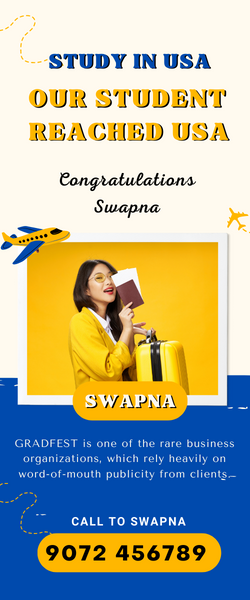
Work Visa / UK Work Visa
With numerous job opportunities, a higher standard of living, and an excellent place to raise children, the United Kingdom is a prosperous world. People from all over the world apply for the UK Global Talent Visa every year. Let's see if you're qualified for it.
Overview
A Skilled Worker visa allows you to enter or remain in the UK to work for an approved employer in an eligible job.
This visa has replaced the Tier 2 (General) work visa.
The Global Talent Visa is a unique UK immigration route. This work visa category is intended solely for talented and promising foreign immigrants interested in working in specific sectors in the United Kingdom. Applicants must be from countries other than the European Economic Area (EEA) and Switzerland.

To be eligible for a Skilled Worker visa, you must meet the following requirements:
Your visa can be valid for up to 5 years before it needs to be extended. When your visa expires or if you change jobs or employers, you must apply to extend or update it.
You can extend your visa as many times as you want as long as you meet the eligibility requirements. After 5 years, you may be eligible to apply for permanent residence in the UK (also known as 'indefinite leave to remain'). This gives you the right to live, work, and study in the country for as long as you want, as well as apply for benefits if you qualify.
You must apply online. How you apply depends on whether you're :
If you want to change jobs or employers, you must apply to have your visa updated. If your partner and children are eligible, you can include them in your application to stay in the UK.
You can apply for a visa up to three months before your start date in the UK. This date is printed on your sponsorship certificate.
You must prove your identity and provide your documents as part of your application.
Allow extra time if you need to make an appointment to do this. When you start your application, you'll find out if you need one.
After you've applied online, proven your identity, and submitted your documents, you should receive a decision on your visa within :
You, your partner or children will each need to :
If you work in public sector healthcare
If you are a doctor or nurse, or work in health or adult social care, see if you are eligible to apply for the Health and Care Worker visa instead. It is less expensive to apply for, and you do not have to pay the annual immigration health surcharge.
If your application is successful, you'll get a full list of what you can and cannot do with a Skilled Worker visa.
To be eligible for a Skilled Worker visa, you must meet all of the following requirements.
This visa is appropriate for your job.
You'll be working for a Home Office-approved UK employer and will be paid at least the minimum wage for the type of work you'll be doing.
The minimum salary for the type of work you'll be doing is whichever is the highest out of the following 3 options :
You must know its four-digit occupation code. If you already have a job offer, request your occupation code from your employer. If you do not know your code, we will assist you.
You should be paid at least £ 25,600 per year or £ 10.10 per hour, whichever is greater. If the 'going rate' for your job is higher than both of these, you will almost always be required to be paid at least the going rate.
When you can be paid less
If you do not meet the usual salary requirements and do not work in healthcare or education, you may still be eligible if your annual salary is at least £ 20,480 and your hourly wage is at least £ 10.10.
If your job is eligible but your salary is less than £ 25,600 or your job's usual 'going rate,' you may still be able to apply for a Skilled Worker visa. You must still be paid a minimum of £ 10.10 per hour.
If you earn at least £ 20,480 per year and meet one of the following criteria, you can be paid between 70% and 90% of the usual going rate for your job.
Your job is in a shortage occupation
A 'shortage occupation' is a skilled job in which there is a labour shortage in the UK. You can apply if your job is on the shortage occupation list.
Check the list of shortage occupations to see if your job is on it and how much you'll need to be paid. Check to see if there is a shortage in the area you will be working in - England, Scotland, Wales, or Northern Ireland.
You have a PhD level qualification that's relevant to your job
If your job qualifies for a PhD salary discount, you can be paid 80% or 90% of the job's usual going rate, depending on the subject.
You can be paid 80% of your job's usual going rate if you have a science, technology, engineering, or maths (STEM) qualification, as long as you are still paid at least £ 20,480 per year.
If you do not have a STEM qualification, you can be paid 90% of your job's usual going rate as long as you earn at least £ 23,040 per year. In both situations, you must:
Examine the list of jobs that qualify for a PhD salary discount to see if yours is among them and how much you should be paid. If you are a leader in research or academia, you may be eligible to apply for the Global Talent visa. There are no language or salary requirements for this visa.
You work in science or higher education as a postdoctoral researcher.
If you work in a postdoctoral position in science or higher education, you can be paid 70% of your usual going rate.
To be eligible for this salary reduction, your job must fall under one of the following occupation codes :
You're under 26, studying or a recent graduate, or in professional training
If one of the following applies, you can be paid 70% of your job's usual going rate :
If this applies to you, check how much you'll need to be paid to qualify for this visa.
Before applying for a Skilled Worker visa, you must have a job offer from an approved UK employer. Because they are sponsoring you to come to or stay in the UK, approved employers are also known as sponsors.
If your employer isn't already approved, they can apply for a sponsor licence if they meet the requirements. A license application typically takes 8 weeks to process.
If you already have a job offer from an approved employer
Your employer, also known as your sponsor, will verify that you meet the requirements. They will issue you a 'certificate of sponsorship' as proof. The sponsorship certificate is an electronic record, not a physical document. There will be a reference number on it that you will need for your visa application. You must apply for your visa within three months of receiving your sponsorship certificate.
Unless you have previously successfully applied for a visa, you will usually be required to demonstrate your knowledge of the English language when you apply.
Level of English
You must demonstrate that you can read, write, speak, and understand English at the Common European Framework of Reference for Languages (CEFR) level B1.
You can prove your knowledge of English by :
If you're a doctor, dentist, nurse, midwife or vet
If you've already passed an English Language assessment accepted by the relevant regulated professional body, you don't need to prove your English knowledge.
If you are a veterinarian, you may be required to demonstrate that you have passed an English Language assessment with the Royal College of Veterinary Surgeons.
When you apply for a Skilled Worker visa, you'll need to have enough money to :
If your job is on the shortage occupation list, you will pay a lower application fee.
Healthcare Surcharge
You must also pay the healthcare surcharge for each year of your stay, which is usually £ 624.
To demonstrate that you can support yourself in the UK, you must have at least £ 1,270 in your bank account.
You must have had the funds available for at least 28 consecutive days. Day 28 must fall within the first 31 days of applying for this visa.
You'll usually be required to show proof of this when applying, unless :
Your partner and children will also need to prove they can support themselves while they're in the UK
When you apply, you must include the following information :
Other documents you might Need
Depending on your circumstances, you might be asked to provide :
Bank statements, for example, are proof that you have enough personal savings to support yourself in the UK (unless your certificate of sponsorship shows your employer can support you)
Evidence of your relationship with your partner or children, if they are applying with you.
Your tuberculosis test results if you're from a listed country
A criminal record certificate is required if you work in certain jobs.
A valid ATAS certificate if your employer tells you that you need one because your job involves PhD-level or higher research on a sensitive subject.
If your qualification is from outside the UK, you'll need to apply through Ecctis. Your UK PhD certificate or your unique Ecctis reference number (formerly unique UK NARIC reference number).
Criminal record certificate
If you are applying from outside the UK and work in the UK, you must provide a criminal record certificate.
Proving your identity and providing supporting documents
As part of your application, you'll need to prove your identity. This is determined by where you are from and the type of passport you have. You'll either :
You'll be told what you need to do when you apply.
If you do need an appointment :

Fill below form and we will get back!